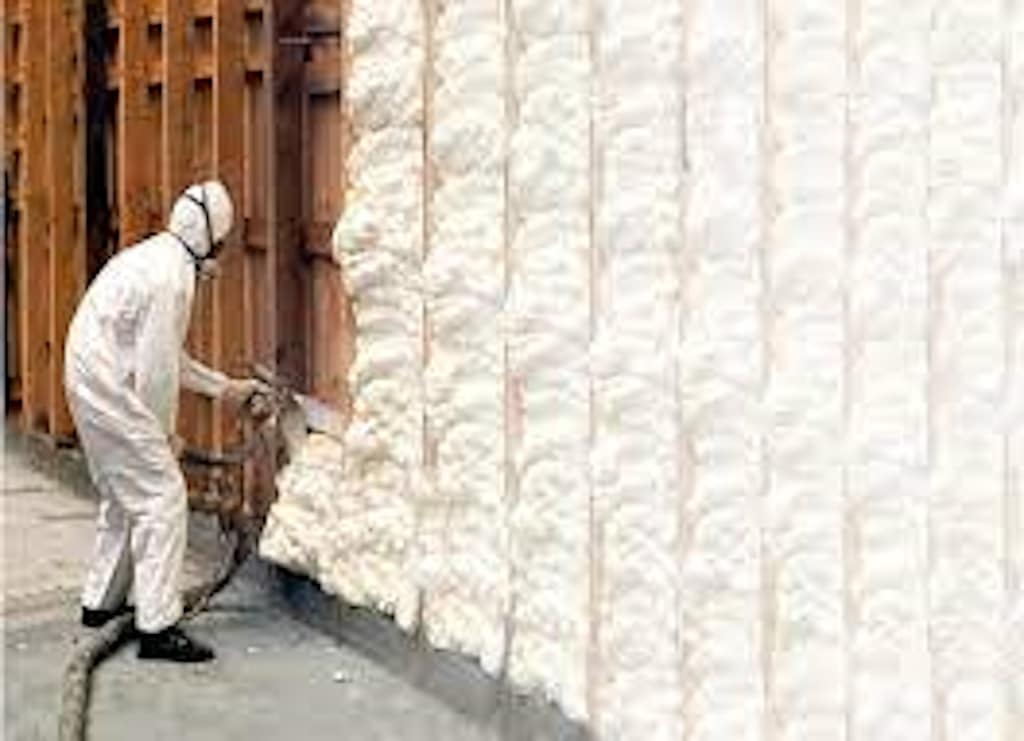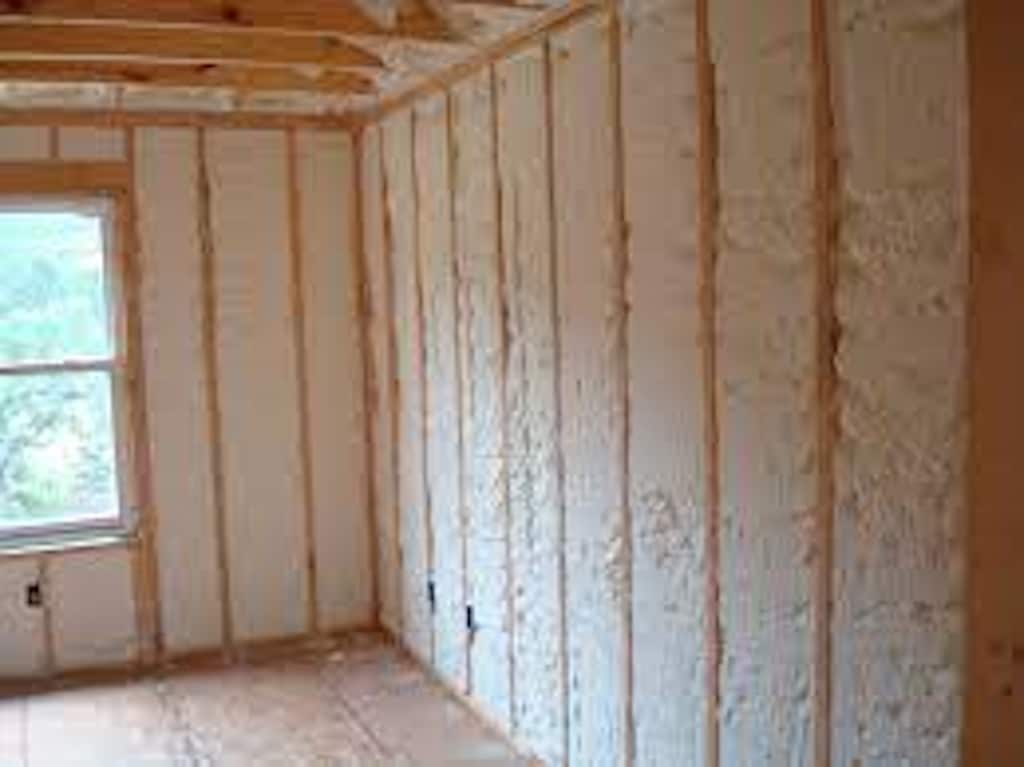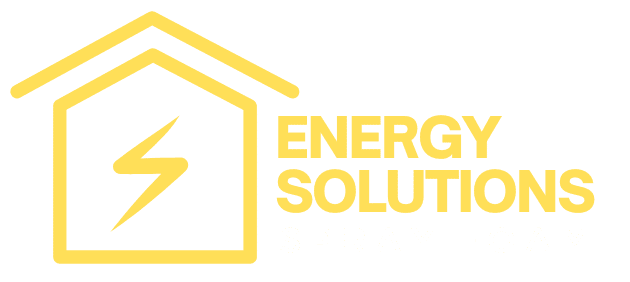Spray Foam Insulation
Revolutionizing Insulation with Energy-Efficient Solutions
Open and Closed Cell Spray Foam Insulation
Open cell and closed cell spray foam insulation are two different types of insulation materials used for improving energy efficiency in buildings. Here are the key differences between them:
1. Structure: Open cell spray foam is made up of tiny cells that are not completely sealed, allowing air and moisture to permeate through it. Closed cell spray foam, on the other hand, consists of densely packed cells that are sealed off, making it impermeable to both air and moisture.
2. Density: Open cell spray foam has a lower density compared to closed cell spray foam. This lower density contributes to its softer and more flexible nature, allowing it to expand significantly upon application. Closed cell spray foam, being denser, is more rigid and doesn’t expand as much.
3. Insulation Value: Both types of foam provide excellent insulation properties, but closed cell spray foam has a higher R-value (a measure of thermal resistance) per inch compared to open cell foam. This means that closed cell foam generally offers better insulation and a higher level of energy efficiency.
4. Moisture Barrier: As mentioned earlier, closed cell spray foam is impermeable to moisture. Therefore, it acts as an effective moisture barrier, preventing water from passing through it. Open cell spray foam, while it can still repel some moisture, is not a complete barrier and may allow small amounts of water vapor to pass through.
5. Soundproofing: The denser structure of closed cell spray foam makes it more effective at reducing sound transmission, providing better soundproofing qualities. Open cell foam, with its more open structure, does not provide as much sound insulation.
6. Cost: Closed cell spray foam tends to be more expensive than open cell foam due to its higher density and superior insulating properties. The cost difference between the two can vary depending on factors such as location and installation requirements.
When choosing between open cell and closed cell spray foam insulation, it’s important to consider factors such as budget, climate conditions, desired insulation level, and specific project requirements. Consulting with a professional insulation contractor can help determine the most suitable option for your needs.
Request a FREE Estimate
Schedule our premium spray foam insulation service now and experience the difference firsthand

Types of Spray Foam – Advantages & Considerations
Both open and closed cell insulation can be suitable for steel commercial buildings, but they have different characteristics and applications. Here’s a brief comparison:
1. Open Cell Insulation:
– Characteristics: Open cell insulation is composed of cells that are not completely sealed. The cells are filled with air or another gas, resulting in a soft and flexible material.
– Advantages: Open cell insulation is cost-effective, provides good sound dampening properties, and has a high expansion rate, making it ideal for filling irregular spaces.
– Considerations: Open cell insulation has a lower R-value per inch compared to closed cell insulation, which means it may require thicker application for desired thermal performance. It also has a lower resistance to moisture.
2. Closed Cell Insulation:
– Characteristics: Closed cell insulation consists of cells that are completely sealed and filled with a gas, resulting in a rigid and dense material.
– Advantages: Closed cell insulation offers high insulation efficiency, excellent moisture resistance, enhanced structural support, and a higher R-value per inch, allowing for thinner application.
– Considerations: Closed cell insulation tends to be more expensive than open cell insulation, and it provides less sound dampening due to its rigidity.
When choosing between open and closed cell insulation for steel commercial buildings, consider factors such as budget, moisture control requirements, desired insulation thickness, soundproofing needs, and climate conditions. Consulting with an insulation professional can help determine the best solution for your specific building and requirements.

Offering Spray Foam Insulation to the Following Texas Cities
The following Dallas, TX Metro area cities are serviced by Energy Solutions Spray Foam.
Addison, Allen, Anna, Balch Springs, Bartonville, Carrollton, Coppell, Corinth, Dallas, Denton, Fairview, Farmers Branch, Fate, Flower Mound, Forney, Frisco, Garland, Heath, Highland Park, Highland Village, Lake Dallas, Lavon, Lewisville, Little Elm, Lucas, McKinney, Melisa, Mesquite, Murphy, Plano, Prosper, Richardson, Rockwall, Rowlett, Royse City, Sachse, Shady Shores, Sunnyvale and Wylie.
We also service the following North Texas cities:
Alba, Athens, Bettie, Big Sandy, Brownsboro, Bullard, Callender Lake, Canton, Carthage, Center, Chandler, Como, Daingerfield, Deadwood, East Tawakoni, Edgewood, Emerald Bay, Emory, Eustace, Frankston, Gilmer, Gladewater, Grand Saline, Greenville, Gun Barrel City, Hallsville, Hawkins, Henderson, Hideaway, Hughes Springs, Jacksonville, Jefferson, Kaufman, Kemp, Kilgore, Laneville, Liberty City, Lindale, Linden, Lone Star, Longview, Marshall, Mineola, Mount Pleasant, Mount Selman, Mount Vernon, Nacogdoches, Ore City, Overton, Pinehill, Pittsburg, Poetry, Quinlan, Quitman, Shady Brook, Sulphur Springs. Terrel, Troup, Turner Town, Tyler, Union Grove, Van, Warren City, Waskom, White House, White oak, Wills Point, Winnsboro, Winona, Yantis.


